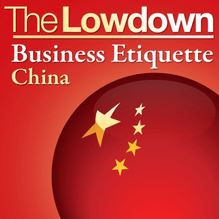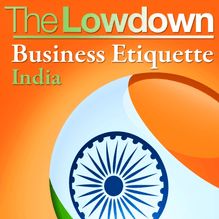-
 Univers
Univers
-
 Ebooks
Ebooks
-
 Livres audio
Livres audio
-
 Presse
Presse
-
 Podcasts
Podcasts
-
 BD
BD
-
 Documents
Documents
-
- Cours
- Révisions
- Ressources pédagogiques
- Sciences de l’éducation
- Manuels scolaires
- Langues
- Travaux de classe
- Annales de BEP
- Etudes supérieures
- Maternelle et primaire
- Fiches de lecture
- Orientation scolaire
- Méthodologie
- Corrigés de devoir
- Annales d’examens et concours
- Annales du bac
- Annales du brevet
- Rapports de stage
La lecture à portée de main
Vous pourrez modifier la taille du texte de cet ouvrage
Découvre YouScribe en t'inscrivant gratuitement
Je m'inscrisDécouvre YouScribe en t'inscrivant gratuitement
Je m'inscrisEn savoir plus
Vous pourrez modifier la taille du texte de cet ouvrage
En savoir plus

Description
Informations
| Publié par | Creative Content |
| Date de parution | 12 avril 2009 |
| Nombre de lectures | 0 |
| EAN13 | 9781906790288 |
| Langue | English |
Informations légales : prix de location à la page 0,0150€. Cette information est donnée uniquement à titre indicatif conformément à la législation en vigueur.
Extrait
THE LOWDOWN: Business etiquette – India
By Michael Barnard
THE LOWDOWN: BUSINESS ETIQUETTE - INDIA
First published in 2009 By Creative Content Ltd, Roxburghe House, Roxburghe House ,273-287 Regent Street, London, W1B 2HA. Copyright © 2009 Creative Content Ltd
The moral right of Michael Barnard to be identified as the author of this work has been asserted by him in accordance with the Copyright, Designs and Patents Act, 1988.
All rights reserved. No part of this publication may be reproduced or transmitted in any form by any means, electronic or mechanical, including photocopying, recording or any information storage and retrieval system, without prior permission in writing from the publisher nor be otherwise circulated in any form or binding or cover other than that in which it is published.
Typesetting by CPI Rowe Cover Design by Daniel at HCT Design
ISBN 978-1-906790-28-8
www.creativecontentdigital.com
TABLE OF CONTENTS
PART 1 INTRODUCTION
PART 2 DOING BUSINESS IN INDIA
An overview
PART 3 SETTING UP A DEAL
Initial contact, hierarchy, language, arranging a meeting, testing the water, the Indian approach to business
PART 4 GETTING THERE AND GETTING AROUND
Preparing to travel, Indian holidays, dress code, women in business, regional differences, hotels, getting around, travel within India
PART 5 BUSINESS MEETINGS
Indian customs, greetings, meetings procedure, forms of address, negotiating, currency, body language, the legal system, accounting practices
PART 6 SOCIALISING
Indian food, table manners, health precautions, nightlife, dinner in a private home, conversational taboos, presents, invitations to non-business events
PART 7 DOs AND DONT's
PART 8 FINALLY
APPENDIX Indian Currency
PART 1. INTRODUCTION
Welcome to ‘Business Etiquette – India’. In an easy to use Q&A format, we’re going to give you the lowdown on how to do business in India, using cultural and social know-how to get the best results.
This isn’t a tourist guide and it’s not an explanation of how India came to play such a prominent role in the world of commerce. It’s a quick-and-easy teach-in for business people who want to trade with India and who want to put their best foot forward while they’re there.
We’ll include some day-to-day travel advice and a little cultural and historical background, but really this is about tips and traps. There are some important rules to follow in order to avoid misunderstandings and to ensure everything will run smoothly. There’s nothing particularly difficult or complicated about doing business in India, but there are somedifferences from western protocol and some sensitivities that you need to be aware of.
First we’ll cover the initial steps of making contact. Should you telephone, write or email? Will a potential contact come to see you or should you jump on a plane straightaway? Do youneed an interpreter? Should you approach your business idea subtly or directly?
We’ll talk a little about planning a trip: getting there and getting around. India is a big country and it’s not always obvious what the etiquette is for seeking help from yourcontact in making travel and accommodation arrangements.
We’ll address the all-important routines of the business discussions themselves: what‘s the protocol for Indian business meetings, what sort of agendas will they follow? Is there anyspecific etiquette or unusual customs which need to be observed?
We’ll look briefly at some differences in the attitude to commerce and how history and culture have informed negotiating practices.
Then we’ll move on to the social side, which is an important part of Indian life, and consider the types of business and personal socialising that make up the after-hours scene and whatkind of behaviour and activities you can expect.
Finally, we’ll recap with a list of ‘dos and don’ts’.
Simply for ease, and because most Indian business people are male, I’ll mostly be using ‘he’ and ‘him’ when discussing these things. But there’s no difficulty these days in women operating at all levels in Indian business, although there are still some sensitivities you need to be aware of. We’ll talk about those later.
Let’s get started.
PART 2. DOING BUSINESS IN INDIA
Generally speaking, you’ll find India is a good place to do business. The infrastructure has improved considerably in recent years and modern business methods are being adopted.
Q:
Is India a dangerous place for the business traveller? There seem to have been some awful terrorist attacks in recent years.
You're right: there have been some frightening incidents, and the shootings in Mumbai in 2008 at the Taj Mahal and Oberoi hotels in particular shocked many western businesspeople, because those hotels were widely used by business travellers.
Those kinds of incidents can make you feel vulnerable, but I guess you could feel the same way about the Twin Towers in New York or the train and bus bombings in London and Madrid. All major commercial centres seem to be at risk.
Violence is not a feature of international business life in India. It's a competitive but civilised environment. The cities are generally pretty safe places to walk around and most Indian people are gentle and helpful. You should take the same sort of precautions you would in any large city - avoid isolated areas late at night, don't leave cash or valuables lying around, and so on - but there's no particular risk to life and limb.
Q:
Is it a difficult place to do business culturally?
Compared with many developing countries, western businesspeople find many things familiar. There’s a long tradition of international trade. The relaxation of regulation in recent years and the improvement of the communications infrastructure has certainly done a lot to oil the wheels. But the apparent ‘westernisation’ of India can be deceptive. Under the surface of the familiar business practices there are a lot of cultural, political, religious and social influences which need to be taken into account.
Q:
For example?
We can go into detail later, but let’s say there’s still something of the street market about Indian trade. The relatively clean-cut practice in many western countries of quoting for a job, making a few minor adjustments to price and service levels and agreeing the deal, is rare in India. Typically, there’s a lot more wheeling and dealing. The first figures discussed might bear little relation to the ultimate deal. Patience is a virtue in Indian trading. But of course, much depends on whether you’re trading as a customer, a supplier, a partner, or setting up a business there.
Q:
I guess a lot of businesspeople are using India as a supplier of services or goods.
Yes, that’s certainly true - but there are many goods India cannot yet produce itself and which it needs to import, so there are many salesmen as well as buyers visiting India. We’ll discuss all types of relationship, but you’re right: one of the biggest opportunities is cost-effective buying of low-priced goods or services - and for the most part we’ll have that in the back of our minds.
PART 3. SETTING UP A DEAL
Q:
What’s the best way to set up a deal?
Let’s start at the beginning. You see an opportunity and you want to chase it. How do you go about it? Well, personal contact is important and this is how most business is done in India. You can initially set up a dialogue by letter, fax, email or a phone call - but the postal service is unreliable, so these days most written communication is electronic.
Q:
What’s the etiquette for written communication? Is it quite formal?
It’s broadly based on British pre-war protocols, although it’s changing now. Letters follow the old 20 th century rules - namely, ‘Dear Sir’ and ‘yours faithfully’, or ‘Dear Mr Patel’ and ‘yours sincerely.’ The same is true of initial emails, which should be composed as though they were letters. Once contact has been established and you know each other, emails may revert to the American style, like ‘Hi, Rajiv’ and ‘All the best.’ Occasionally you might come across some unusual forms of address (for example, ‘Dear Honourable Sir’), but this rather flowery language is now dying out and you don’t need to respond in the same style.
Q:
So first and last names follow the western sequence?
Yes, for all practical purposes you can assume that – unlike, for example, Chinese names – Indian names comprise a given name and a family name in that order. There may be considerable extra implications of a religious or class nature about a name, but for business and normal social purposes you can take it that someone called ‘Rajiv Beri’ is ‘Rajiv’ to his friends and equal colleagues, ‘Mr Beri’ to acquaintances and ‘Sir’ to his staff.
Q:
That sounds slightly more hierarchical than what I’m used to.
Yes. It’s one of the ways in which Indian commerce has retained some old British customs. There’s a higher degree of formality between colleagues, a pretty consistent use of family names on first acquaintance, and a normal use of ‘Sir’ when talking upwards in a company hierarchy. It’s more like the German system than modern British or American protocols. It depends to some extent on the type of business and also the city in which it is operating, but I’ll expand on that later.
Q:
Can I use English when I write or speak to someone, or do I need an interpreter?
English is fine.
-
 Univers
Univers
-
 Ebooks
Ebooks
-
 Livres audio
Livres audio
-
 Presse
Presse
-
 Podcasts
Podcasts
-
 BD
BD
-
 Documents
Documents
-
Jeunesse
-
Littérature
-
Ressources professionnelles
-
Santé et bien-être
-
Savoirs
-
Education
-
Loisirs et hobbies
-
Art, musique et cinéma
-
Actualité et débat de société
-
Jeunesse
-
Littérature
-
Ressources professionnelles
-
Santé et bien-être
-
Savoirs
-
Education
-
Loisirs et hobbies
-
Art, musique et cinéma
-
Actualité et débat de société
-
Actualités
-
Lifestyle
-
Presse jeunesse
-
Presse professionnelle
-
Pratique
-
Presse sportive
-
Presse internationale
-
Culture & Médias
-
Action et Aventures
-
Science-fiction et Fantasy
-
Société
-
Jeunesse
-
Littérature
-
Ressources professionnelles
-
Santé et bien-être
-
Savoirs
-
Education
-
Loisirs et hobbies
-
Art, musique et cinéma
-
Actualité et débat de société
- Cours
- Révisions
- Ressources pédagogiques
- Sciences de l’éducation
- Manuels scolaires
- Langues
- Travaux de classe
- Annales de BEP
- Etudes supérieures
- Maternelle et primaire
- Fiches de lecture
- Orientation scolaire
- Méthodologie
- Corrigés de devoir
- Annales d’examens et concours
- Annales du bac
- Annales du brevet
- Rapports de stage

















